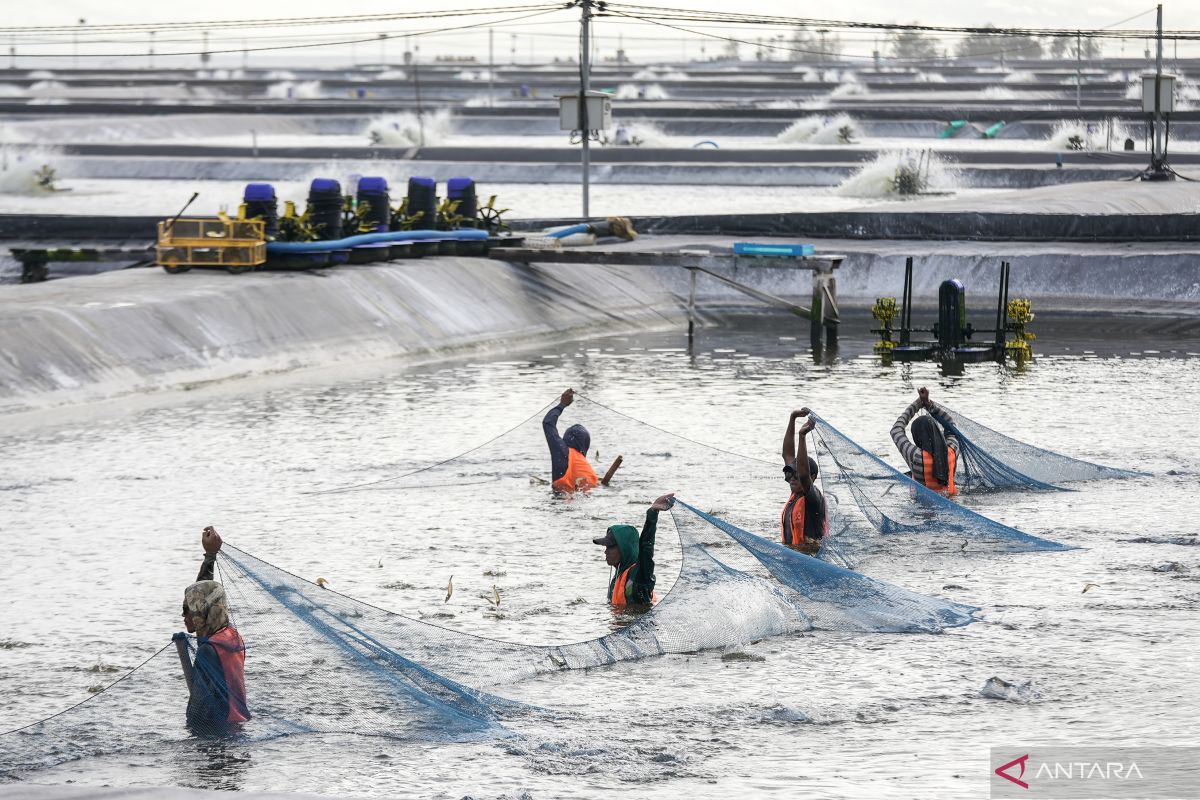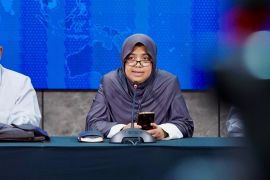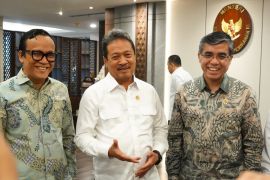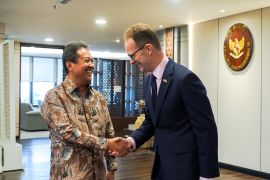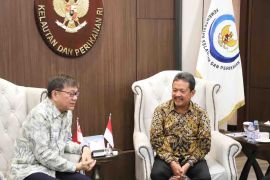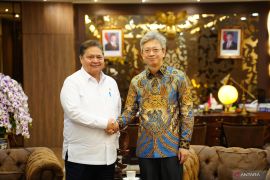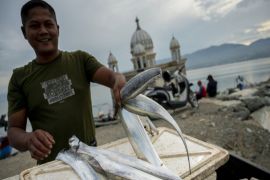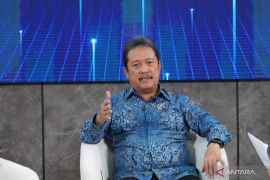The World Bank has described the blue economy as an eco-friendly utilization of marine resources that aims to simultaneously stimulate economic growth, improve welfare, and preserve marine ecosystems.
Indonesia, which has been blessed with 6.4 million square kilometers of water area (combining marine and land waters), has been striving to find the best solution to manage and preserve its marine and fishery resources, while taking the prosperity of fishermen and business actors into account.
For the realization of a blue economy, the Indonesian government is collaborating with numerous fishermen and business players to improve the management of Fisheries Management Areas (WPPs). Such a collaboration is believed to be one of the solutions that the country has long needed.
Archipelagic states, including Indonesia, can consider the blue economy as crucial to their identity. As one of the founding countries of the Archipelagic and Island States (AIS) Forum, Indonesia could emerge as a role model for other developing archipelagic states.
In fact, the AIS Forum has devised the Blue Economy Development Index (BEDI), an instrument for measuring and evaluating the progress made in the realization of a sustainable blue economy.
The 1st AIS Forum Summit, which will take place in Bali province in October this year, could serve as a stage for the Indonesian government to demonstrate its commitment to implementing strategies aimed at realizing a blue economy.
In the presence of delegates from 51 AIS Forum member states, Indonesia is expected to push the world to adopt blue economy as a common crucial agenda.
Five priority programs
To realize a blue economy in Indonesia, the Ministry of Maritime Affairs and Fishery (KKP) has prepared a dedicated road map that encapsulates several programs.
Head of the KKP Ministry's Extension and Human Resources Development Agency (BPPSDM), I Nyoman Radiarta, informed that the government is focusing its efforts on executing five "blue" priority programs.
One of the programs, which is targeted to be completed in 2045, concerns the expansion of the marine conservation area by 30 percent, meaning that the ministry is aiming to expand the area from 3.3 million square kilometers to almost 4.3 million square kilometers.
The program is expected to help the country preserve the sustainability of its fishery resources while absorbing a higher amount of carbon emissions.
The Sea of Sawu in East Nusa Tenggara province has become the pilot location for the program.
Next, the KKP Ministry has been implementing quota-based measured fishing in six fishing zones across Indonesia.
The measured fishing program is being implemented to control the number of fish caught in the hopes of ensuring the country's fishery resource sustainability without hurting the interests of fishermen and business players.
Under the third priority program, the KKP Ministry has been according special attention to the production of five featured commodities, namely shrimp, lobster, crab, seaweed, and tilapia fish.
By involving local residents in Kebumen district, Central Java, the ministry has managed to expand the shrimp cultivation area in the district to 100 hectares, with 40 tons of shrimp produced per hectare.
Meanwhile, the ministry's remaining priority programs are related to efforts to develop coastal regions and reduce plastic waste in the Indonesian seas. Regarding the latter, since 2022, the ministry has been directing fishermen to cease fishing activities for one month in a year.
During that month, the ministry is encouraging fishermen to take part in cleaning up plastic waste from the sea. The government is then buying out the collected waste at regular prices.
The program has proven to be effective, given that as much as 88 tons of plastic waste was collected from Indonesian waters in 2022. Of the total waste, 13 tons was picked up in Aceh alone.
The KKP Ministry is optimistic that by sustaining the five priority programs, it will succeed in laying a foundation for Indonesia to optimally and properly manage its marine and fishery potentials.
Optimizing technology
The government is fully aware of the support and convenience technology can offer in realizing a blue economy in Indonesia. Hence, it has prepared a digital application called electronic measured fishing (e-PIT) in accordance with Government Regulation No. 11 of 2023 concerning measured fishing.
Doni Ismanto, special assistant to the Minister of KKP, explained that the application has been developed to enhance and support the monitoring of post-production non-tax state revenue (PNBP) and provide clear regulations for fishing vessels.
The KKP Ministry is planning to activate the e-PIT application on a national scale in 2024. The application will offer fishermen and related stakeholders convenience in accessing various services, such as those related to the acquisition of business and shipping permits.
Meanwhile, Minister of KKP, Sakti Wahyu Trenggono, has affirmed that the measured fishing program can pave the way for the realization of a blue economy in Indonesia. He said the program is part of a policy that takes biological, ecological, economic, and social aspects into account, with the end goal of maintaining the abundant fishery resources Indonesia is blessed with.
Therefore, fishermen, business actors, central and regional governments, and all related stakeholders must continue to synchronize their steps for the sake of presenting a blue economy to Indonesia.
Related news: President Jokowi pushes ASEAN, India to cooperate in blue economy
Related news: Indonesia pushing green energy transition as ASEAN chair: official
Translator: Donny A, Tegar Nurfitra
Editor: Azis Kurmala
Copyright © ANTARA 2023
